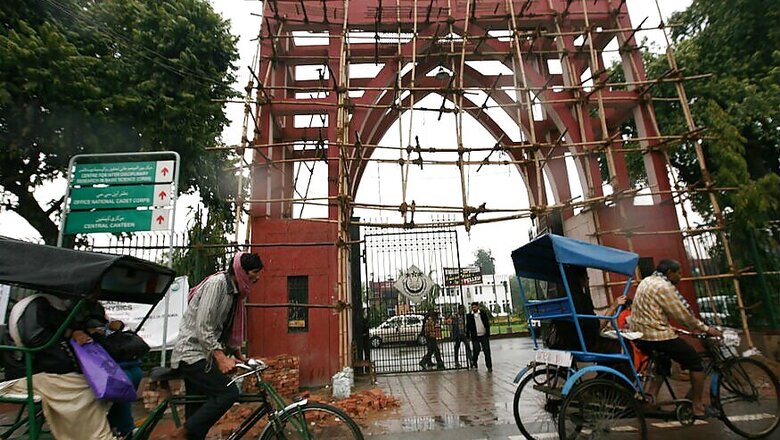
views
Universal individualistic rights were considered insufficient for the protection of the interests of the minorities and therefore Constitution gave special rights to the minorities. Article 29 gives a right to ‘conserve a distinct culture, script and language’. This can be best done in the minority educational institutions which create the necessary spaces for the realization of these rights.
Article 30(1) gives minorities, whether based on religion or language, the right to ‘establish and administer educational institutions of their choice’. A large number of the minority institutions in the country are institutions of the linguistic minorities.
Hindus, too, run a number of minority institutions on the basis of their status in different states as a linguistic minority: hundreds of Sindhi, Tamil, Telugu and Gujarati minority institutions are flourishing in the country. Hindus are religious minority in Kashmir, Punjab and few north-eastern states.
Minority character is a Constitutional concept and no one has a right to question its conceptual validity. As a matter of fact minorities’ rights have been held to be the basic structure of the Constitution. The latest decision of the Government of India to oppose the minority character of Jamia Millia Islamia (JMI) University in the Delhi High Court on the analogy of its stand about Aligarh Muslim University (AMU) has yet again shaken the confidence of the Muslim minority.
JMI case is entirely different from AMU. JMI was a university from day one and therefore even prior to enactment of JMI Act in 1988, it was very much a university whose degrees too were recognized. It may be recalled that the Supreme Court in 1967 without even hearing AMU had decided that AMU is not a minority institution as it was established by the Central Legislature in 1920 and there was no AMU prior to passing of this law. Moreover, the court said without any record to substantiate that Muslim community has waived its minority character in lieu of recognition of degrees. Thus equating JMI with AMU is erroneous.
It is a misconception that the AMU case is about its minority character. In fact the primary issue is about the powers of Parliament in respect of AMU Act which were questioned by the Allahabad High Court. It is strange that Government of India is not defending the powers of the Parliament. Modi government may not agree with the decisions of earlier governments but as far as Parliament is concerned, every executive government is bound by the laws passed by the Parliament. If it so wishes it can get earlier laws repealed but in the court it has no option but to argue in favour of constitutionality of laws passed by the Parliament.
A minority institution may reserve seats for the members of the minority which had established such an institution. Minority institutions under Article 15(5) are exempt from the SC/ST and OBC reservation. The State under Article 30(2) cannot, in granting aid to educational institutions, discriminate against any educational institution on the ground that it is a minority institution. Governmental funding thus does not affect the minority character of JMI. In fact government is prohibited from attaching such conditions with the funding which will annihilate the minority character of a minority institution.
Parliament has been prohibited from passing any law which impinges on fundamental rights. But Parliament has all the powers to enact laws for the protection of fundamental rights. Aligarh Muslim University Act, 1920 and Jamia Millia Islamia Act, 1988 were passed to promote fundamental rights of the Muslim minority which had taken the initiative on their own to establish these universities. Similar laws have been passed in different states for incorporating number of minority universities. Several deemed Universities of minorities have been established by the MHRD, Government of India under Section 3 of the UGC Act, 1956. Whatever government can do ‘under an Act’ (under the UGC Act), Parliament is fully justified to do ‘by an Act’ (AMU & JMI Acts). Thus the mere enactment of laws by the Parliament cannot be taken as ground to deny minority character to JMI and AMU.
The author is an expert in Constitutional Law and is Vice-chancellor, NALSAR University of Law, Hyderabad. Views are personal.




















Comments
0 comment